Steve Scalise faces significant opposition in speakership bid
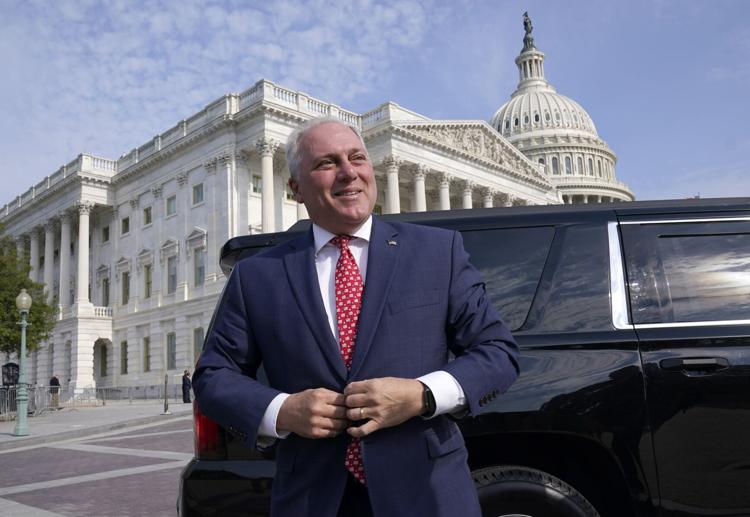
By Casey Harper | The Center Square U.S. House Republican Majority Leader Steve Scalise, R-La., was the leading contender to be the Speaker of the House Thursday morning, but mounting opposition is threatening his chance. House Judiciary Chairman Jim Jordan, R-Ohio, is a key contender as well, but at least for now, neither seems able to nab the 217 needed votes to become speaker of the House. Meanwhile, Democrats have nominated Democrat Minority Leader Hakeem Jeffries, D-N.Y., to be speaker. While Republicans will likely be unwilling to support that choice, they may have to work with Democrats to find a lawmaker palatable enough to both sides. Until the House selects a speaker, no legislation can go forward. After Scalise’s nomination, there were hopes of an immediate vote but is still working to rally the 217 votes needed to become House Speaker. Republicans met again Thursday, but a vote has yet to take place. The pushback comes after Scalise received the support of a majority of his fellow House Republicans for the speaker of the House nomination during a closed-door conference meeting Wednesday. That vote was conducted by secret ballot, with Scalise narrowly besting Jordan on a vote of 113-99, according to multiple media reports. Some Republicans have taken issue with having the votes behind closed doors. “Let’s do this on the House floor instead of behind closed doors. Stop dragging it out,” Rep. Marjorie Taylor Greene, R-Ga., wrote on X, formerly known as Twitter. “If Kevin McCarthy had to go 15 rounds then the next Speaker should be able to do the same or more if they have to.” Jordan, who has the endorsement of former President Donald Trump, still has the support of some Republicans despite Scalise’s majority win. “I will be voting for Jim Jordan to be Speaker of the House on the floor when the vote is called. In conference, Jordan received 99 votes and Scalise received 113,” Rep. Lauren Boebert, R-Fla., wrote on X. “We had a chance to unify the party behind closed doors, but the Swamp and K Street lobbyists prevented that. The American people deserve a real change in leadership, not a continuation of the status quo.” And some Republicans are optimistic that Jordan could re-enter the race if Scalise fails to get momentum. “Just for clarification: I was one of the earliest endorsers for Jim Jordan for Speaker,” Rep. Ronny Jackson, R-Texas, wrote on X. “I whipped hard for his support around the Republican conference and I enthusiastically voted for Jim for speaker yesterday. Jim is a great conservative and I was proud to be one of his strongest supporters. Last night when we voted, Steve Scalise received the majority of votes. Jim Jordan withdrew his name from consideration and pledged to vote for Steve Scalise, as did I. It is now up to Scalise to get 217 votes on the floor of the House. “If Steve Scalise can’t win the Speakership, I will be aggressively urging Jim to put his name back in the race,” he added. Scalise is the current Majority Leader, so a significant leadership role in the party will immediately become vacant if he becomes speaker. U.S. Rep. Kevin McCarthy, R-Calif., who only narrowly won the speakership earlier this year after more than a dozen public votes, said he will not run again after being ousted by Rep. Matt Gaetz, R-Fla, and a handful of other Republicans. Later, though, McCarthy softened his tone, saying he would let the conference decide. Another key issue for lawmakers to handle is whether one lawmaker will still be able to file a motion to vacate the speaker, an unusual allowance given by McCarthy to secure the needed votes after the series of speakership votes earlier this year. Gaetz used that very allowance to file the motion that led to the ousting of McCarthy that kicked off this battle for the speakership. Now, lawmakers face a looming partial government shutdown in mid-November as well as pressure to supply funds and munitions to both Ukraine and Israel, which has declared war on the terrorist group, Hamas. Scalise announced in August that he had been diagnosed with blood cancer. The current Speaker Pro Tempore is Rep. Patrick McHenry, R-N.C., who will determine the times of any speaker votes until a lawmaker secures the speakership. Gaetz echoed Greene’s call for public votes. “Let’s do the messy work of governing and leadership selection in front of the people,” he wrote on X. “Just like I voted against McCarthy time after time…in public…making my argument, others should have to reveal their thinking and be appropriately judged by their voters. We elected [and] removed McCarthy with total transparency. Let’s replace him in the same manner.” Republished with the permission of The Center Square.
Tommy Tuberville praised by Republicans for standing up to Chuck Schumer
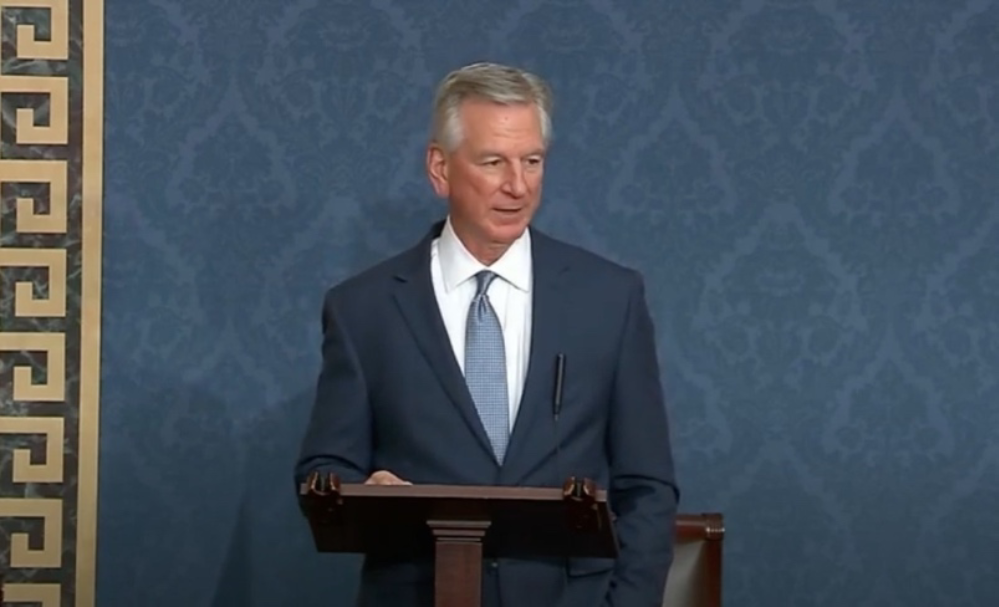
It has been seven months, and U.S. Senator Tommy Tuberville (R-Alabama) is still refusing to give unanimous consent on almost 300 military promotions. On Wednesday, Sen. Tuberville personally tackled the growing logjam of military leaders holding positions they have been nominated to as interims by attempting to bring up the nomination for Marine Corps Commandant Gen. Eric Smith. Majority Leader Chuck Schumer (D-New York) responded to Tuberville’s maneuver by bringing Smith and two other generals to the floor for Senate confirmation. In February, Sen. Tuberville imposed a hold on all senior military promotions after the Pentagon implemented a taxpayer-funded abortion-related travel policy that is ostensibly illegal. Coach Tuberville’s position has not changed: either the Pentagon can reverse its controversial and likely illegal policy, or Chuck Schumer can bring these nominations to the floor individually. For the past seven months, Schumer has refused to bring the nominations to the floor despite constantly complaining about “military readiness.” Former President Donald Trump said on Truth Social, “BIG WIN FOR TOMMY. Unlike McConnell and his group of automatic Democrat YES VOTES, Tommy T is willing to take on the Radical Left Fascists & Thugs that are destroying our Country. What a difference!!” Republican Presidential candidate Sen. Tim Scott said, “Listen, he was right to do what he said. The Hyde Amendment is clear. You cannot use a penny of federal dollars in support of abortion. Period. Transportation, any other way. I think it was seven or eight years ago, Hugh, I held promotions as well, because there was a move to take the Guantanamo Bay prisoners and bring them into Charleston, South Carolina. You have to be willing to take a stand. The Senate can, at some point, override you, and that’s what’s happened recently, but the truth is you only have certain weapons in your arsenal, and I must concede. Under President Biden, holding up promotions is not necessarily a bad thing. What we’ve seen in the top brass in today’s military is too much focus on ESG and DEI and gender issues, vaccine mandates as opposed to war fighting, lethality, and making sure that the resources and the equipment and the training that we need, that’s where the focus of this military should be.” Sen. Joni Ernst (R-Iowa) said, “Senator Schumer just proved he could have moved these military promotions months ago. He held our servicemembers hostage for purely political reasons.” Sen. Katie Britt (R-Alabama) said on X, “As I’ve said previously, Senator Schumer has the power to schedule votes on each of these nominees. Today’s move only confirms this has been true all along.” Sen. John Cornyn (R-Texas) said, “Senator Schumer could have broken this logjam months ago by filing cloture like he did today on the nominee for Chairman of the Joint Chiefs of Staff.” Sen. J.D. Vance (R-Ohio) said, “The military cannot be an arm of either admin’s social policy. There’s a law that says abortions will not be publicly funded and the Biden administration is circumventing that in a way that destroys credibility in the military.” Sen. Rick Scott (R-Florida) said, “Senator Tuberville did the right thing and showed today that this was all politics by the Democrats. And they don’t care that they’re violating the law.” Sen. Mike Lee (R-Utah) said on social media, “@SecDef brought this on himself and @DeptofDefense by adopting a policy designed only to flout 10 USC 1093. […] If confirmation delays really are imperiling national security, then @SecDef should immediately suspend his abortion-travel policy, which is what it will take to get the confirmation process expedited. He can’t blame @SecDefwithout implicating himself. […] Since when is funding for abortion travel—which @DeptofDefense never funded until six months ago—essential to American national security?” Congressman Barry Moore (R-AL02) said, “Schumer could have approved every military nominee by scheduling votes over the last several months, but he cared more about funding abortion travel than military readiness. Major win for Sen Tuberville!” Rep. Ronny Jackson (R-Texas) said, “Senator Tuberville has bravely and steadfastly held the line in the Senate by placing a hold on all DoD senior leader nominations until the DoD complies with federal law and ceases its abortion policies. DoD has complained this will harm national security, but DoD has the ability to stop this immediately. All they have to do is rescind this illegal policy.” Tuberville said he might bring future nominees to the floor through regular order in the Senate. Critics of Tuberville’s actions say this process is too time-consuming to be used repeatedly. To connect with the author of this story or to comment, email brandonmreporter@gmail.com.
House Republicans amend the NDAA addressing Tommy Tuberville’s concerns
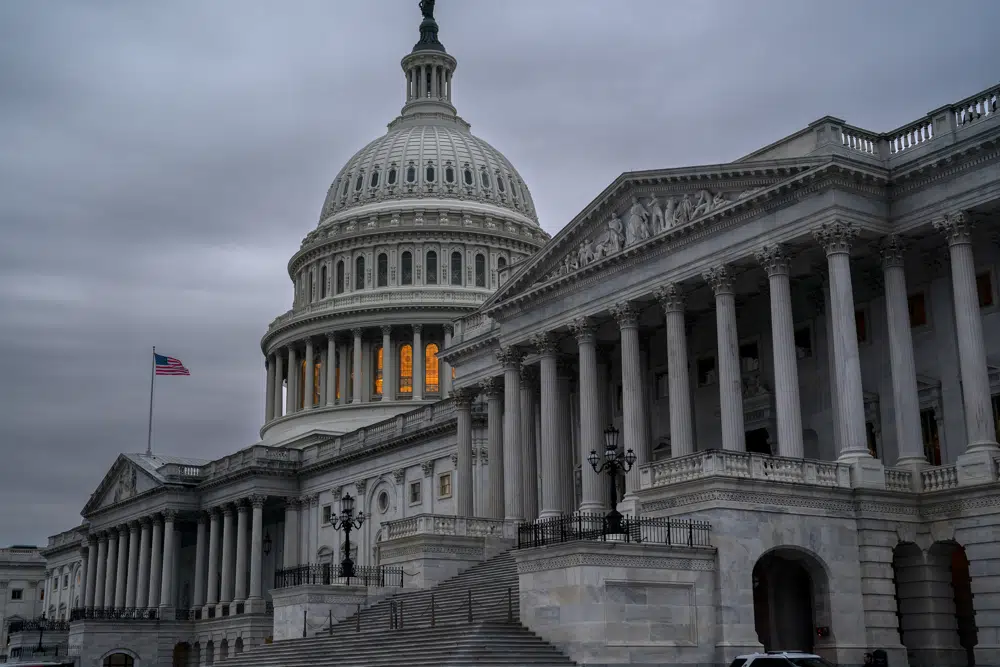
On Thursday, Congressional Republicans added several partisan amendments to the 2024 National Defense Authorization Act, including one overturning the DoD policy on abortions. The amended NDAA passed the U.S. House of Representatives on Friday. President Joe Biden said it is “irresponsible” for U.S. Senator Tommy Tuberville to block the confirmation of military officers in protest of a Defense Department policy that pays for travel for service members and their dependents to go out of state to get an abortion in state’s that have banned or restricted elective abortions. “He’s jeopardizing U.S. security by what he’s doing,” Biden said of Sen. Tommy Tuberville. “It’s just totally irresponsible, in my view.” Biden had demanded that Republicans address the Tuberville issue. “I expect the Republican Party to stand up — stand up and do something about it,” Biden continued. “The idea that we don’t have a chairman of the Joint Chiefs of Staff, the idea that we have all these promotions that are in abeyance right now and we don’t know what’s going to happen, the idea they were injecting into fundamental foreign policy decisions what in fact is a domestic social debate on social issues, is bizarre. I don’t ever recall it happening, ever. And it’s just totally irresponsible, in my view.” “I’m confident that the mainstream Republican Party no longer, does not support what he’s doing, but they got to stand up and be counted,” Biden said. “That’s how it ends.” House Republicans responded Thursday by amending the NDAA on the House floor. The House passed an amendment by Rep. Ronny Jackson (R-Texas) prohibiting the Secretary of Defense from paying for or reimbursing expenses relating to abortion services 221 – 213. Only two Republicans voted against including Jackson’s abortion amendment. The House also passed several other GOP priorities. The House passed an amendment by Rep. Matt Rosendale (R-Montana) that prohibits TRICARE from covering and the Department of Defense from furnishing sex reassignment surgeries and gender hormone treatments for transgender individuals 222 – 211. The House passed an amendment by Rep. Ralph Norman (R-South Carolina) prohibiting the provision of gender transition procedures, including surgery or medication, through the Exceptional Family Member Program 222 to 210. The House passed an amendment to prohibit federal funds from being used to establish a position within the Department of Defense for anything similar to Chief Diversity Officers or Senior Advisors for Diversity and Inclusion 217 – 212. The House passed an amendment by Rep. Lauren Boebert (R-Colorado) prohibiting the Department of Defense Education Activity schools from purchasing and having pornographic and radical gender ideology books in their libraries. The House passed an amendment by Rep. Warren Davidson (R-Ohio) that requires a study and report on health conditions arising in members of the Armed Forces after the administration of the COVID-19 vaccine by a voice vote. Rep. Boebert proposed an amendment prohibiting Defense Department schools from having “pornographic and radical gender ideology books in their libraries.” That passed 222-209. Rep. Norman’s amendment to ban Diversity, Equity, and Inclusion within the Department of Defense was narrowly adopted 214-213 on the second vote. An amendment from Rep. Eli Crane (R-Arizona) prohibiting the Pentagon from requiring training in certain “race-based concepts” was adopted 214-210. Not all amendments passed. A series of five proposals to limit U.S. involvement in Ukraine failed. An amendment from Rep. Matt Gaetz (R-Florida) to prohibit using federal funds for training on diversity, equity, and inclusion was rejected Thursday in a 210-221 vote. The House rejected an amendment from Reps. Davidson and Chip Roy (R-Texas) that “expresses a sense of Congress that the U.S. should not continue subsidizing NATO member countries who choose not to invest in their own defense by meeting” established financial contribution targets. The vote was 212-218, with two Democrats voting to support the measure and eight Republicans voting against it. An amendment to prohibit the transfer of cluster munitions to Ukraine was rejected 147-276-2. 98 Republicans and 49 Democrats voted in favor, and 121 Republicans and 155 Democrats voted against. The House rejected an amendment prohibiting using federal funds to rename military bases. The Republican changes to the NDAA meant that it lost Democratic support in the final vote. Democrats denounced the amendment as a cruel, harmful amendment to roll back a DoD policy helping service women travel to get the reproductive health care they need, putting the health and lives of over 230,000 women in uniform at risk. Democrats also denounced amendments that strip medically-necessary care for LGBTQ+ service members. Congresswoman Terri Sewell (D-AL07) voted against the NDAA due to the Republican changes on the floor. “For the past 62 years, Republicans and Democrats have come together to craft bipartisan defense authorization bills that would support our troops and strengthen our national security,” said Rep. Sewell. “But this year, rather than continuing that essential tradition, Speaker [Kevin] McCarthy has caved to the most extreme members of his party and allowed the radical right wing to poison the defense bill with culture war provisions that would undermine our military readiness and harm our service members.” “I did not take this vote lightly,” continued Sewell. “I have proudly voted in favor of the annual defense bill every year since coming to Congress. But I cannot and will not support a bill that would rip basic health care away from our service members and make bigotry and discrimination a centerpiece of our defense policy. Republicans need to stop playing politics with our national security.” The NDAA authorizes funding levels for the Department of Defense (DoD) and allows the Armed Forces to pay, train, and equip U.S. service members, support America’s allies worldwide, and carry out essential national security operations. House Minority Leader Hakeem Jeffries (D-New York), Minority Whip Katherine Clark (D-Massachusetts), and Democratic Caucus Chair Pete Aguilar (D-California) released a joint statement after the chamber approved a number of conservative amendments to the NDAA. “Extreme MAGA Republicans have chosen to hijack the historically bipartisan National Defense Authorization Act to continue attacking reproductive freedom and jamming their right-wing ideology down the throats of the American people,” the Democratic trio wrote in a joint statement. To connect with the author of this story or to comment, email brandonmreporter@gmail.com
Barry Moore supports Lauren Boebert’s call to censure Joe Biden over border crisis
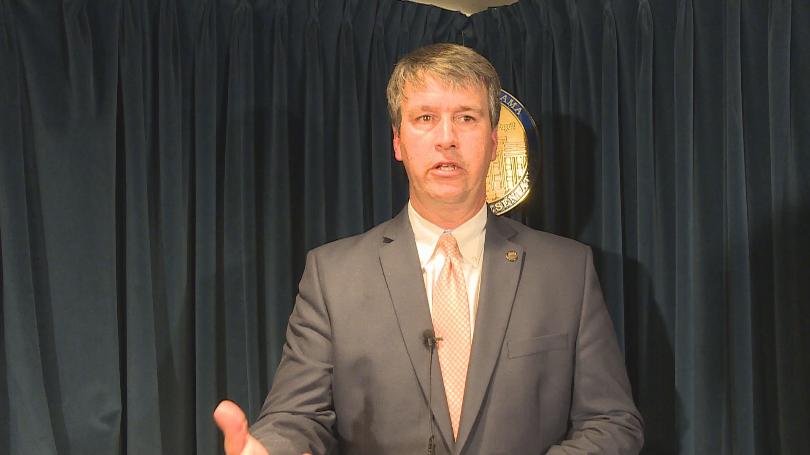
Rep. Barry Moore has joined other leaders to support Rep. Lauren Boebert’s bill to censure President Joe Biden over the border crisis. According to a press release, Moore joined Boebert and other leaders in a press conference to address the resolution. Moore has visited the southern border twice this year. President Biden has not visited the border yet. Some statistics Moore emphasized in his release include: Under President Trump, there were 1,400 children in HHS custody at the border. At one point in June, there were 22,000. Over 1 million illegal aliens have been encountered by CBP since Biden took office, including a record-breaking 180,000 illegal aliens in May. Since Biden took office, CBP arrested 1,413 alien drug smugglers—up from 386 last year. Since Biden took office, CBP arrested 40 alien murderers—up from 3 last year. Since Biden took office, CBP arrested 353 alien sex offenders—up from 156 last year. Since Biden took office, CBP arrested 1,118 aliens for DUIs—up from 364 last year. In just the first four months of Biden’s term, enough fentanyl to kill every American four times over has been interdicted by Border Patrol. Moore stated, “Ensuring the integrity of our borders is one of the most fundamental duties of a president, yet President Biden has destroyed four years of progress at the border to satisfy far-left activists and cheap labor-loving globalists. His reckless determination to reverse every Trump administration policy regardless of the outcome has put every American family and our economy at risk. We must hold President Biden to account for putting politics over the people he has sworn an oath to protect.” Moore stated on Twitter, “President Biden’s dereliction of duty at our southern border is completely unacceptable. Proud to join @RepBoebert in holding Biden accountable for putting politics over the people he has sworn an oath to protect.” President Biden's dereliction of duty at our southern border is completely unacceptable. Proud to join @RepBoebert in holding Biden accountable for putting politics over the people he has sworn an oath to protect. https://t.co/hXhV1H98uQ — Rep. Barry Moore (@RepBarryMoore) June 24, 2021 The bill is supported by: American Principles Project, Citizens for Renewing America, Eagle Forum, Federation for American Immigration Reform (FAIR), Heritage Action, and NumbersUSA. Along with Moore, 22 additional Members of Congress joined Boebert to introduce her bill including: Reps. Andy Biggs, Dan Bishop, Madison Cawthorn, Jeff Duncan, Pat Fallon, Matt Gaetz, Louie Gohmert, Bob Good, Paul Gosar, Morgan Griffith, Diana Harshbarger, Jody Hice, Ronny Jackson, Thomas Massie, Alex Mooney, Troy Nehls, Ralph Norman, Marjorie Taylor Greene, Bill Posey, Lance Gooden, Chip Roy, and Randy Weber.
Congress approves bill to make Juneteenth a federal holiday; Mo Brooks and Mike Rogers voted against

The United States will soon have a new federal holiday commemorating the end of slavery in the nation. The House voted 415-14 Wednesday to make Juneteenth, or June 19th, the 12th federal holiday. The bill now goes to President Joe Biden’s desk, and he is expected to sign it into law. Juneteenth commemorates the day the last enslaved African Americans learned they were free. Confederate soldiers surrendered in April 1865, but word didn’t reach the last enslaved Black people until June 19, when Union soldiers brought the news of freedom to Galveston, Texas. That was also about 2 1/2 years after the Emancipation Proclamation freed slaves in the Southern states. It’s the first new federal holiday since Martin Luther King Jr. Day was created in 1983. “Our federal holidays are purposely few in number and recognize the most important milestones,” said Rep. Carolyn Maloney, D-N.Y. “I cannot think of a more important milestone to commemorate than the end of slavery in the United States.” Rep. Sheila Jackson Lee, D-Texas, speaking next to a large poster of a Black man whose back bore massive scarring from being whipped, said she would be in Galveston this Saturday to celebrate along with Republican Sen. John Cornyn of Texas. “Can you imagine?” said the rather short Jackson Lee. “I will be standing maybe taller than Sen. Cornyn; forgive me for that because it will be such an elevation of joy.” The Senate passed the bill a day earlier under a unanimous consent agreement that expedites the process for considering legislation. It takes just one senator’s objection to block such agreements. “Please, let us do as the Senate. Vote unanimously for passage,” Rep. David Scott, D-Ga., pleaded with his colleagues. The vote comes as lawmakers struggle to overcome divisions on police reform legislation following the killing of George Floyd by police and as Republican state legislators push what experts say is an unprecedented number of bills aimed at restricting access to the ballot box. While Republicans say the goal is to prevent voter fraud, Democrats contend that the measures are aimed at undermining minority voting rights. Several members of the Congressional Black Caucus took to the floor to speak in favor of the bill. Rep. Bonnie Watson Coleman, D-N.J., said she viewed Juneteenth as a commemoration rather than a celebration because it represented something that was delayed in happening. “It also reminds me of what we don’t have today,” she said. “And that is full access to justice, freedom, and equality. All these are often in short supply as it relates to the Black community.” The bill was sponsored by Sen. Edward Markey, D-Mass., and had 60 co-sponsors. Democratic leaders moved quickly to bring the bill to the House floor after the Senate’s vote the day before. Some Republican lawmakers opposed the effort. Rep. Matt Rosendale, R-Mont., said creating the federal holiday was an effort to celebrate “identity politics.” “Since I believe in treating everyone equally, regardless of race, and that we should be focused on what unites us rather than our differences, I will vote no,” he said in a press release. The vast majority of states recognize Juneteenth as a holiday or have an official observance of the day, and most states hold celebrations. Juneteenth is a paid holiday for state employees in Texas, New York, Virginia, and Washington. Under the legislation, the federal holiday would be known as Juneteenth National Independence Day. Rep. Clay Higgins, R-La., said that he would vote for the bill and that he supported the establishment of a federal holiday, but he was upset that the name of the holiday included the word “independence” rather than “emancipation.” “Why would the Democrats want to politicize this by co-opting the name of our sacred holiday of Independence Day?” Higgins asked. Rep. Brenda Lawrence, D-Mich., replied, “I want to say to my white colleagues on the other side: Getting your independence from being enslaved in a country is different from a country getting independence to rule themselves.” She added: “We have a responsibility to teach every generation of Black and white Americans the pride of a people who have survived, endured, and succeeded in these United States of America despite slavery.” The 14 House Republicans who voted against the bill were Andy Biggs of Arizona, Mo Brooks of Alabama, Andrew Clyde of Georgia, Scott DesJarlais of Tennessee, Paul Gosar of Arizona, Ronny Jackson of Texas, Doug LaMalfa of California, Thomas Massie of Kentucky, Tom McClintock of California, Ralph Norman of South Carolina, Mike Rogers of Alabama, Rosendale of Montana, Chip Roy of Texas, and Tom Tiffany of Wisconsin.
Congressmen call for the reopening of the U.S. Capitol
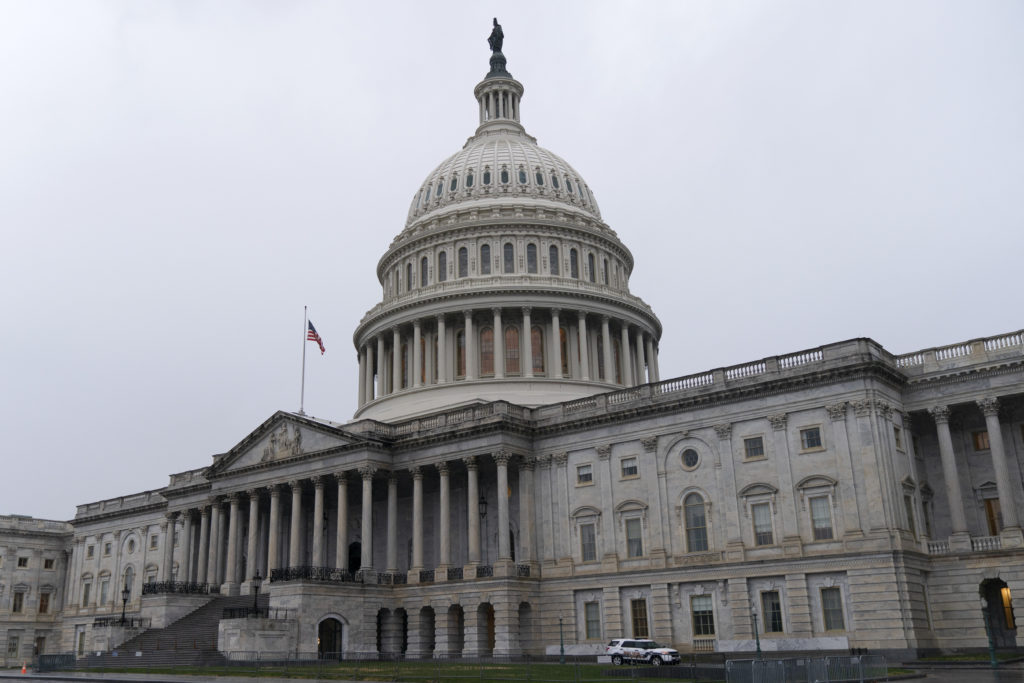
Today, Congressmen Robert Aderholt, Jerry Carl, Mo Brooks, and Barry Moore joined more than two dozen other leaders, asking Speaker Nancy Pelosi and Senate Majority Leader Chuck Schumer to reopen the United States Capitol Complex to visitors. The Capitol has been closed since the January 6 attack by a mob of pro-Trump protestors. In March 2020, the U.S. Capitol had restricted access because of COVID-19 concerns. As more and more people become vaccinated, the push to reopen has been becoming louder. However, there are still security concerns. Brooks stated, “The First Amendment to the Constitution establishes the people’s right to petition their government for redress of their grievances. Prior to Pelosi and Schumer’s draconian Capitol access restrictions, the American people could easily visit the Capitol offices of their senators and representatives. Now, to gain access to the House and Senate office buildings, citizens must be on preapproved lists kept by the House and Senate Sergeant at Arms.” He continued, “America has historically prided ourselves on transparency and easy citizens access to government institutions. It is shameful that Nancy Pelosi and Chuck Schumer persist in keeping the law-abiding American citizens out of their own Capitol, especially when states are lifting restrictions and the CDC is recommending fully-vaccinated Americans return to pre-COVID normalcy. Nancy Pelosi said ‘about 75%’ of House members are vaccinated. That exceeds herd immunity requirements.” Aderholt commented, “With the pandemic coming to an end, it is time to open the United States Capitol Complex to the citizens it belongs to. While those of us elected to Congress, and members of our staff all work in the Capitol, we should never come to believe that it is there strictly for our exclusive use. We are there because the people of this country elected us and they should be able to visit their elected leaders and take tours of their Capitol.” Other co-signers of the letter are: Congressman Ralph Norman, Congressman Andy Harris, Congressman Madison Cawthorn, Congressman W. Gregory Steube, Congressman Matt Rosendale, Congressman Brian Mast, Congressman Tracey Mann, Congressman Tom McClintock, Congressman Jody Hice, Congressman Andy Biggs, Congressman Chip Roy, Congressman Tom Tiffany, Congressman Debbie Lesko, Congressman Jeff Duncan, Congressman Warren Davis, Congressman Mike Gallagher, Congressman Bill Posey, Congressman Bob Good, Congressman Randy Weber, Congressman Dan Bishop, Congressman Paul Gosar, Congressman Ronny L. Jackson, Congressman Joe Wilson, Congressman Louie Gohmert, Congressman Brian Babin, Congressman Neal Dunn, Congressman Marjorie T. Greene, Congressman Michael Cloud. The letter can be viewed here.
Senate confirms Robert Wilkie for Veterans Affairs secretary

The Senate on Monday confirmed Pentagon official Robert Wilkie to be secretary of Veterans Affairs, charged with delivering on President Donald Trump’s campaign promises to fire bad VA employees and steer more patients to the private sector. Wilkie won approval on a bipartisan vote of 86-9, securing the backing of many Democrats after insisting at his confirmation hearing that he will not privatize the government’s second-largest department. It was a moment of respite from the sharp political divisions engulfing Trump’s other nominees in the final months before congressional midterm elections. Wilkie is Trump’s third pick for the job in 18 months. The longtime public official says he will “shake up complacency” at VA, which has struggled with long waits in providing medical treatment to millions of veterans. In a statement released by the White House, Trump applauded the confirmation vote and said he looked forward to Wilkie’s leadership. “I have no doubt that the Department of Veterans Affairs will continue to make strides in honoring and protecting the heroic men and women who have served our nation with distinction,” he said. Trump selected Wilkie for the post in May after firing his first VA secretary, David Shulkin, amid ethics charges and internal rebellion at the department over the role of private care for veterans. Trump’s initial replacement choice, White House doctor Ronny Jackson, withdrew after allegations of workplace misconduct surfaced. Wilkie, a former assistant secretary of defense under President George W. Bush, has received mostly positive reviews from veterans’ groups for his management experience, but the extent of his willingness to expand private care as an alternative to government-run VA care remains largely unknown. Trump last year pledged he would triple the number of veterans “seeing the doctor of their choice.” Currently more than 30 percent of VA appointments are made in the private sector. Under repeated questioning at his hearing, the Air Force and Navy veteran said he opposed privatizing the agency of 360,000 employees and would make sure VA health care is “fully funded.” When pressed by Sen. Jon Tester, the top Democrat on the panel, if he would be willing to disagree with Trump, Wilkie responded “yes.” “I have been privileged to work for some of the most high-powered people in this town,” said Wilkie, currently a Pentagon undersecretary for Defense Secretary Jim Mattis. “They pay me for their opinions, and I give those to them.” Wilkie’s main task in the coming months will be carrying out a newly signed law to ease access to private health providers. That law gives the VA secretary wide authority to decide when veterans can bypass the VA, based on whether they receive “quality” care, but the program could face escalating costs. Some Democrats have warned the VA won’t be able to handle a growing price tag, putting it at risk of budget shortfalls next year. Major veterans’ groups want full funding for core VA medical centers, which they see as best-suited to veterans’ specialized needs such as treatment for post-traumatic stress. As VA secretary, Wilkie also will have more power under a new accountability law to fire VA employees. Lawmakers from both parties have recently raised questions about the law’s implementation, including how whistleblower complaints are handled and whether the law is being disproportionately used against rank-and-file employees rather than senior managers who set policy. “The tone has been set by President Trump on the direction of VA reforms,” said Dan Caldwell, executive director of the conservative Concerned Veterans for America. “There have been a tremendous number of bills passed in the last year and half, and all will require a lot of work to make sure they are properly implemented.” Republican Sen. Johnny Isakson of Georgia, chairman of the Senate Veterans Affairs Committee, praised Wilkie as “eminently qualified,” saying he will “bring stability and leadership” to VA. Wilkie served as acting VA secretary after Shulkin’s firing in March, before returning to his role as Pentagon undersecretary. He will replace current acting VA secretary Peter O’Rourke, who clashed with the VA inspector general after refusing to release documents relating to VA whistleblower complaints and casting the independent watchdog as an underling who must “act accordingly.” Under pressure from Congress, the VA agreed last week to provide documents to the IG. Republished with the permission of the Associated Press.
Donald Trump’s VA choice bows out in latest Cabinet flame-out

President Donald Trump’s White House doctor reluctantly withdrew his nomination to be Veterans Affairs secretary Thursday in the face of accusations of misconduct, the latest embarrassing episode highlighting Trump’s struggles to fill key jobs and the perils of his occasional spur-of-the-moment-decision-making. The weeks-long saga surrounding the nomination of Navy Dr. Ronny Jackson leaves the government’s second-largest agency without a permanent leader while it faces an immediate crisis with its private health care program. And it abruptly tarnished the reputation of a doctor beloved by two presidents and their staffs. White House officials say they are taking a new look at the way nominees’ backgrounds are checked — and they believe they will persuade Trump to take additional time to ensure that a replacement is sufficiently vetted. The leading person now under consideration for the VA post is former Rep. Jeff Miller, who chaired the House Veterans Affairs Committee before retiring last year, according to White House officials. Miller is a strong proponent of expanding private care for veterans, a Trump priority. Trump quickly selected Jackson, a rear admiral in the Navy, to head the VA last month after firing Obama appointee David Shulkin following accusations of ethical problems and a mounting rebellion within the agency. Jackson, a surprise choice who has worked as a White House physician since 2006, faced immediate questions from Republican and Democratic lawmakers as well as veterans groups about whether he had the experience to manage the massive department of 360,000 employees serving 9 million veterans. Then this week’s unconfirmed allegations by current and former colleagues about drunkenness and improper prescribing of controlled substances, compiled and released by Democrats, made the nomination all but unsalvageable. “The allegations against me are completely false and fabricated,” Jackson said in a statement announcing his withdrawal. Press secretary Sarah Huckabee Sanders said Jackson was back at work at the White House on Thursday. But his future there remains uncertain. He had stepped aside from directing Trump’s medical care and leading the medical unit while his nomination was being considered. “I would hope the White House would closely consider whether he is the best person to provide medical care for the president,” said Democratic Sen. Chris Coons of Delaware. Trump himself praised Jackson, saying, “He’s a great man, and he got treated very, very unfairly.” Then the president went after Democratic Sen. Jon Tester of Montana, who released a list of allegations against Jackson that was compiled by the Democratic staff of the Senate Veterans Affairs Committee. Trump aides said the president was furious with Tester, who faces a tough re-election fight this fall, and plans to aggressively campaign against him. “I think Jon Tester has to have a big price to pay in Montana,” Trump warned on “Fox & Friends” on TV. Tester, meanwhile, called on Congress to continue its investigation of Jackson. “I want to thank the service members who bravely spoke out over the past week. It is my constitutional responsibility to make sure the veterans of this nation get a strong, thoroughly vetted leader who will fight for them,” he said. Elsewhere in the capital, Congress was questioning another Trump official whose job appears in jeopardy. Scott Pruitt, head of the Environmental Protection Agency, was questioned closely by House Democrats about revelations of unusual security spending, first-class flights, an advantageous condo lease and more. Even Republicans who support Pruitt’s deregulation efforts, said his conduct needed scrutiny. Tom Price, Trump’s first secretary of the Department of Health and Human Services, resigned last year after criticism of his use of private charter flights and military jets. The turmoil at the VA comes as it faces a budget shortfall for its private-sector Veterans Choice program, a campaign priority of Trump’s, with lawmakers deadlocked over a long-term fix due to disagreements over cost and how much access veterans should have to private doctors Veterans are “exhausted by the unnecessary and seemingly never-ending drama,” said Paul Rieckhoff, executive director of Iraq and Afghanistan Veterans of America. “VA’s reputation is damaged, staff is demoralized, momentum is stalled and the future is shockingly unclear.” The VA issued a statement late Wednesday that it would push to have Congress move on an expansion of Choice next month. Sen. Johnny Isakson of Georgia, chairman of the Veterans Affairs Committee, said Thursday he would “work with the administration to see to it we get a VA secretary for our veterans and their families.” White House officials were visibly dismayed Wednesday and Thursday as they watched Jackson suffer the blows of the allegations. The doctor, who is well-liked by and has personal relationships with many White House staffers, cited the withering pressure for withdrawing from consideration for the post, but maintained he had done nothing wrong. Trump said on Fox that he has an idea for a replacement nominee, adding it will be “someone with political capability.” Miller, the former congressman who was described as the leading candidate, is a strong proponent of expanding private care for veterans, Miller led the push to create Choice in 2014. However, major veterans groups and Democrats stand opposed to an aggressive expansion of Choice, seeing the effort as a potential threat to VA medical centers. Dan Caldwell, executive director of the conservative Concerned Veterans for America, urged the White House to take more time “to carefully select and vet a new nominee” who could head VA. “The VA currently has a competent Acting Secretary in Robert Wilkie who can manage the VA along with the rest of his leadership team,” he said. “Considering the tremendous challenges that the last three VA secretaries have faced, it is important that a capable individual with a high level of integrity is selected.” During the presidential campaign, Trump repeatedly pledged to fix the VA by bringing accountability and expanding access to private doctors, criticizing the department as “the most corrupt.” At an Ohio event last July, Trump promised to triple the number of veterans “seeing the doctor of their choice.” Currently, more than 30
VA nominee accused of drunken behavior, reckless prescribing
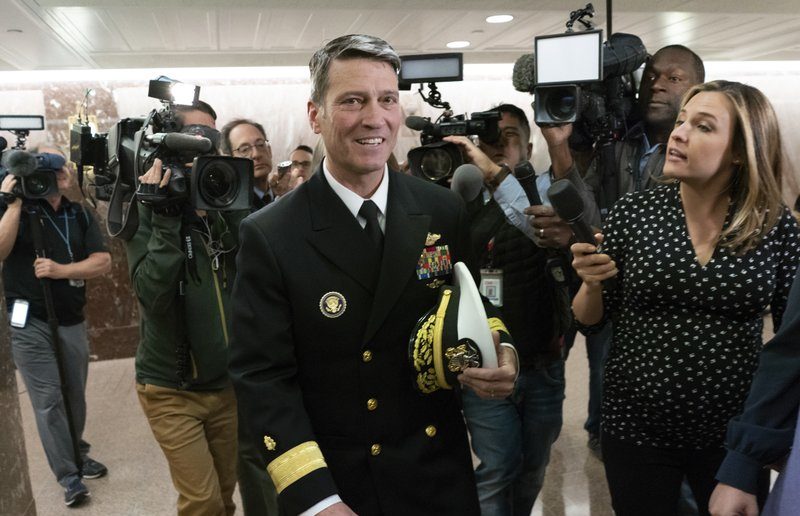
White House doctor Ronny Jackson exhibited a pattern of recklessly prescribing drugs and drunken behavior, including crashing a government vehicle while intoxicated and doling out such a large supply of a prescription opioid that staffers panicked because they thought the drugs were missing, according to accusations compiled by Democratic staff on the committee considering his nomination as Veterans Affairs secretary. The summary was based on conversations with 23 of Jackson’s current and former colleagues at the White House Medical Unit. It is the latest blow to his nomination to lead the government’s second-largest Cabinet agency. In just a matter of days, the allegations have transformed Jackson’s reputation as a celebrated doctor attending the president to an embattled nominee accused of drinking on the job and over-prescribing drugs. He was seen pacing back and forth on the White House grounds Wednesday. And while the White House put on a full-scale defense of Jackson, spokesman Raj Shah said aides are “of course” preparing for the possibility that he might withdraw. “This is, as the president said, Dr. Jackson’s decision,” Shah said on CNN. Jackson huddled late Wednesday evening with top White House press staff. They declined to comment on the situation. A former colleague who spoke to The Associated Press described Jackson as a gregarious, Type A charmer who knew how to position himself for success — attentive to bosses but also causing unnecessary grief and consternation among colleagues. He said Jackson became known as “Candyman” because of the way he handed out drugs. The ex-colleague spoke on condition of anonymity because of fear of retaliation. The “Candyman” nickname was also cited in the summary released by the Democrats. In a section on Jackson’s prescribing practices, the summary said that in one case, missing Percocet tabs threw members of the White House Medical Unit into a panic — but it turned out he had prescribed a “large supply” of the opioid to a White House Military Office staffer. The allegations also referred to multiple incidents of Jackson’s intoxication while on duty, often on overseas trips. On at least one occasion he was nowhere to be found when his medical help was needed because “he was passed out drunk in his hotel room,” according to the summary. At a Secret Service going-away party, the summary says, Jackson got drunk and wrecked a government vehicle. Jackson has denied allegations of bad behavior and told reporters at the White House he was “still moving ahead as planned.” “I never wrecked a car,” he said. “I have no idea where that is coming from.” Reports of overprescribing and alcohol-related behavior problems can jeopardize a doctor’s license. Many state medical boards allow doctors to keep their licenses and return to practice if they complete special treatment programs and submit to random urine screens. The allegations were publicly released on the day that Jackson’s confirmation hearing was to have been held. The hearing was postponed indefinitely while the allegations against him are reviewed. “He treated the people above him very, very well. He treated the people below him very, very poorly,” Sen. Jon Tester, the ranking Democrat on the Senate Veterans Affairs Committee, told the AP. “It’s not surprising the people above him think he was doing a really, really good job.” White House Press Secretary Sarah Huckabee Sanders said Wednesday that Jackson had passed “at least four independent background checks” that found “no areas of concern.” “He has received more vetting than most nominees,” she said. Marc Short, the White House legislative director, could not say he was confident the allegations were false. He was “not familiar” with car wreck episode. But Short also suggested Tester was airing the allegations for political gain. “It’s quite unusual for a United States senator to take allegations that have not been fully investigated, but to flaunt them to the national public to suggest he’s the ‘candyman’ I think is outrageous,” Short said. Tester, speaking on MSNBC, acknowledged that not all the allegations had been verified. “Am I 100% rock solid sure that he did this? No,” Tester said. “But I’ve seen a pattern here that continues on and on and on.” Jackson met late at the Capitol with a key Republican on the Veterans Affairs Committee, Sen. Thom Tillis of North Carolina. They discussed a variety of subjects — “some were the allegations” — as well as Jackson’s credentials for the job. “It was just getting through the facts,” Tillis said. Veterans groups are dismayed over the continuing uncertainty at the VA, already beset by infighting over improvements to veterans care. “The American Legion is very concerned about the current lack of permanent leadership,” said Denise Rohan, national commander of The American Legion, the nation’s largest veterans organization. A watchdog report requested in 2012 and reviewed by the AP found that Jackson and a rival physician exhibited “unprofessional behaviors” as they engaged in a power struggle over the White House medical unit. That report by the Navy’s Medical Inspector General found a lack of trust in the leadership and low morale among staff members, who described the working environment as “being caught between parents going through a bitter divorce.” It included no references to improper prescribing of drugs or the use of alcohol, as alleged in the summary compiled by the Senate Democratic staff members. The White House has released handwritten reports from Trump and former President Barack Obama praising Jackson’s leadership and medical care and recommending him for promotion. Trump’s first VA secretary, David Shulkin, was dismissed after an ethics scandal and mounting rebellion within the agency. But Jackson has faced numerous questions from lawmakers and veterans groups about whether he has the experience to manage the department of 360,000 employees serving 9 million veterans. Republished with permission from the Associated Press.
Lax vetting on Trump nominees begins to frustrate senators

As President Donald Trump’s pick to lead Veterans Affairs skids to a halt, senators from both parties are voicing frustration that the White House is skipping crucial vetting of nominees and leaving lawmakers to clean up the mess. That sentiment was evident Tuesday on Capitol Hill after senators delayed hearings for White House physician Ronny Jackson, Trump’s surprise pick to head the VA. Jackson is facing questions about improper workplace behavior, and even Trump himself acknowledged that there were concerns about his nominee’s experience. “The White House still seems to be feeling its way on the nomination process,” said Sen. Susan Collins, R-Maine, “and does not fully appreciate how important it is to do a thorough vetting and FBI background check on nominees.” Sen. John Thune, R-S.D., said that while lawmakers want to be “deferential as much as we can” to the president’s preferences for his Cabinet, “it would be nice to know some of the issues that come up after the fact before the fact.” Trump, who promised to fill his administration with the “best people,” often gravitates toward advisers he has a personal connection with or who look the part, drawing on the approach he took as a business executive. But as president, the result is a growing list of Cabinet secretaries and other officials who do not appear to undergo the rigorous scrutiny typically expected for White House hires. Andy Puzder, Trump’s initial choice to lead the Labor Department, stepped aside before his confirmation hearings, in part over taxes he belatedly paid on a former housekeeper not authorized to work in the United States. Health and Human Services Secretary Tom Price won confirmation, but ultimately resigned amid disclosures about his expensive travel habits. Others are fighting similar charges, most notably Scott Pruitt, the embattled head of Environmental Protection Agency. Pruitt faces multiple allegations of improper housing, expensing and other practices, prompting several lawmakers to call for him to step down. The Senate has increasingly become a partisan battleground for nomination fights, a war that escalated when President Barack Obama was in the White House and Senate Democrats, who had majority control, changed the rules to allow majority vote for confirming most nominees — the so-called nuclear option — to get around GOP filibusters. Republicans returned the favor once Trump was in the White House, and they had the Senate majority, deploying the tactic to seat Neil Gorsuch on the Supreme Court. Some GOP senators argue that Democrats are slow-walking even those Trump nominees with a solid track record, including Mike Pompeo, who got votes from 14 Democrats and one aligned independent last year during his confirmation for CIA director. Pompeo is now in line to run the State Department, but has faced stiff opposition from some of the same Democrats who backed him a year ago. The Democratic opponents are going to “embarrass themselves,” said Sen. John Cornyn, R-Texas. Thune called it “really a new low.” But questions about the White House’s vetting standards have no doubt given Democrats fresh ammunition to challenge Trump’s Cabinet picks. “Our Republican colleagues bemoan the pace of the nominations,” said Senate Minority Leader Chuck Schumer, D-N.Y. But he said because of the administration’s “quick, sloppy vetting process,” the Senate job of vetting nominees “is more important than ever before.” Sen. Patty Murray, D-Wash., said senators don’t have to agree with a nominee’s position on the issue, but the Senate has a historic role — to advise and consent — that the president’s picks are up to the job. “We’re not going to allow nominees to be jammed through without proper scrutiny and debate,” Murray said. “Now hopefully, the events of the last 24 hours have made it very clear why this is so important.” Asked about the adequacy of vetting process Tuesday, Senate Majority Leader Mitch McConnell said that such questions are better raised with the White House. “Look,” McConnell said, “it’s up to the administration to do the vetting.” Republished with the permission of the Associated Press.
Senators considering a delay for VA confirmation hearing

Senators were discussing plans to delay the confirmation hearing for President Donald Trump’s pick to be Veteran Affairs secretary over growing questions about the nominee’s ability to manage the government’s second-largest department. The hearing for Ronny Jackson, Trump’s White House doctor and a Navy rear admiral, was scheduled for Wednesday. “Some Republican colleagues have told me that they think the hearing should be postponed, which certainly deserves consideration,” said Sen. Richard Blumenthal, D-Conn., a member of the Senate Veterans Affairs Committee. “I think there may well be a need for more time, in fairness to Admiral Jackson, so he and the administration have an opportunity to answer these questions fully and fairly,” he said. Blumenthal declined to discuss why more time might be needed. White House and VA officials were also discussing a delay with key allies outside the administration A spokeswoman for Sen. Johnny Isakson, R-Ga., the committee’s chairman, did not return requests for comment. Trump selected Jackson to head the VA last month after firing former Obama administration official David Shulkin following an ethics scandal and mounting rebellion within the agency. But Jackson has since faced numerous questions from Republican and Democratic lawmakers as well as veterans groups about whether he has the experience to manage the massive department of 360,000 employees serving 9 million veterans. Sen. Mike Rounds, R-S.D., and a committee member, said Jackson’s small staff at the White House will be an issue as he prepares to lead the VA. “We’ve got 360,000 people there,” he said. “Are they going to manage the secretary or is the secretary going to manage the VA? That’s a good question to ask, and he needs to answer it. He needs to be the leader. A lot of folks want to be led and managed.” Rounds said the committee still needs more paperwork from the White House on Jackson before the nomination can go forward. Republished with the permission of the Associated Press.
After close vote, panel sends Mike Pompeo nomination to Senate
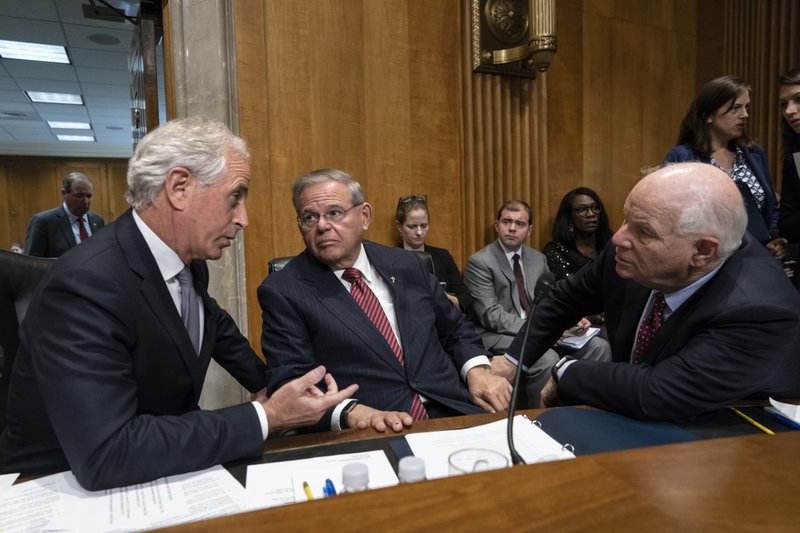
Mike Pompeo, President Donald Trump’s choice for secretary of state, avoided a rare rebuke Monday as the Senate Foreign Relations Committee narrowly recommended him, but the vote served as a warning shot to the White House as nominees to lead the CIA and Veterans Affairs are hitting stiff resistance. Pompeo, who’s now CIA director, received the panel’s approval only after Trump’s last-minute overtures to Sen. Rand Paul, R-Ky. Pompeo’s nomination now goes to the full Senate, where votes are tallying in his favor and Senate Majority Leader Mitch McConnell said he looks forward to voting to confirm him later this week. Trump has been quick to fire his top cabinet secretaries, but Senate Democrats are not so fast to confirm replacements. A grilling is expected Wednesday of Ronny Jackson, the White House physician nominated to head the VA, and Pompeo’s potential replacement at the CIA, Gina Haspel, is also facing scrutiny. It’s also a reminder of how tough it could be to replace Deputy Attorney General Rod Rosenstein. Trump has publicly mused about firing Rosenstein, who is overseeing special counsel Robert Mueller’s investigation into Russian interference in the 2016 election. “Hard to believe,” Trump tweeted Monday about what he called “obstruction.” ″The Dems will not approve hundreds of good people… They are maxing out the time on approval process for all, never happened before. Need more Republicans!” Republicans hold just a slim Senate majority, 50-49, with the prolonged absence of Sen. John McCain, R-Ariz. Pompeo’s bid to become the nation’s top diplomat was in the hands of a few senators, but received a boost Monday when two Democrats, Sen. Joe Manchin of West Virginia and Sen. Joe of Indiana, announced their support. Pressure is mounting on senators from all sides. White House allies are unloading ad campaigns against Democrats from Trump-won states, but progressive groups are pounding senators’ offices in opposition. As soon as Sen. Heidi Heitkamp, D-N.D., announced her support for Pompeo, one group called on her to switch. Ahead of the Foreign Relations Committee’s vote, chairman Bob Corker, R-Tenn., said of the full Senate, “It does appear Mike Pompeo has the votes to be secretary of state.” Supporters point to Pompeo’s resume as a West Point and Harvard Law School graduate who has the president’s confidence, particularly on North Korea. Opponents are focusing on his hawkish foreign policy views and negative comments about gay marriage and Muslims. Paul’s earlier objections to Pompeo, along with overwhelming opposition from Democrats, had set the secretary of state nominee on track to be the first since 1925, when the committee started keeping records, not to receive a favorable recommendation. But Trump and Paul talked repeatedly, including a chat just moments before the vote. “I have changed my mind,” Paul said, explaining he received reassurances that Pompeo agrees with the president that the Iraq war was a “mistake” and that it is time for U.S. troops to leave Afghanistan. Paul’s office said he “got a win” — the promise that Pompeo sides with Trump on those issues — out of the situation, but declined to provide details. “I want Trump to be Trump,” Paul said. Asked about Paul’s change of heart, Trump said, “He’s a good man.” Senators are anxious to have Pompeo in place before international meetings scheduled for later this week and ahead of North Korea talks. Republicans blamed partisan politics for opposition, saying Pompeo is just as qualified as past secretaries of state nominees Hillary Clinton or John Kerry, both of whom received overwhelming support. “A majority of Democrats continue their pointless obstruction to score cheap political points with their base as a willful attempt to undermine American diplomacy,” said White House spokeswoman Sarah Huckabee Sanders. But Democrats resisted easy confirmation of the nation’s top diplomat, and support peeled. Sen. Maggie Hassan, D-N.H., who had been among more than a dozen Democrats who supported Pompeo for CIA director, announced her no vote Monday. “I am concerned that Mr. Pompeo has not demonstrated an understanding that the Secretary of State has an obligation to the American people to stand up for our core values,” she said. Sen. Chris Coons, D-Del., who was among the last Democrats on the foreign relations panel to announce his no vote, said he is concerned that Pompeo “will embolden, rather than moderate or restrain” Trump’s “most belligerent and dangerous instincts.” In a late setback Monday, the panel was short one Republican vote needed for a favorable recommendation because Sen. Johnny Isakson was delivering a eulogy in his home state of Georgia. Rather than postpone voting until his return very late Monday, Coons agreed to allowed his vote to be recorded as “present” so the committee could finish its work. Republished with the permission of the Associated Press.


